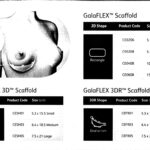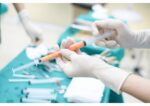Why a Mammogram Before Breast Cosmetic Surgery at 40 Is Essential
Introduction
If you’re considering breast cosmetic surgery—whether augmentation, reduction, or a lift—getting a mammogram before surgery is a crucial step, especially for women aged 40 and above. A mammogram is a specialized X-ray screening that detects early signs of breast cancer or abnormalities. Since breast procedures can affect tissue and imaging, having a baseline mammogram before surgery ensures breast health and safety.
In this article, we explore why women over 40 should undergo a mammogram before breast cosmetic surgery, backed by scientific research, medical recommendations, and expert opinions.
- The Importance of Mammograms at Age 40
1.1. Breast Cancer Risk Increases with Age
Breast cancer is one of the most common cancers among women. According to the American Cancer Society (ACS), the risk of developing breast cancer increases with age, and women over 40 should undergo routine mammograms for early detection (ACS, 2023).
A study published in Cancer Epidemiology, Biomarkers & Prevention found that one in eight women will develop breast cancer in their lifetime, with the majority of cases occurring after age 40 (DeSantis et al., 2021). Detecting any abnormalities before undergoing breast cosmetic surgery is critical to avoid delaying treatment or worsening undiagnosed conditions.
1.2. Identifying Hidden Breast Conditions Before Surgery
A mammogram can reveal:
✅ Benign lumps or cysts that could be mistaken for complications after surgery.
✅ Calcifications that may indicate early-stage cancer.
✅ Asymptomatic tumours that aren’t detectable through physical exams.
Studies show that nearly 15% of breast cancers are detected only via mammography and are not palpable during physical examinations (Mandelblatt et al., 2009).
- Why a Mammogram Matters Before Breast Cosmetic Surgery
2.1. Establishing a Baseline for Future Breast Imaging
A pre-surgery mammogram provides a baseline image of your breast tissue. This is especially important because:
- Cosmetic procedures like implants, lifts, or reductions can change how breast tissue appears on future mammograms.
- Having a baseline scan before surgery allows doctors to differentiate between pre-existing breast tissue patternsand post-surgical changes (Lee et al., 2020).
2.2. Avoiding Unnecessary Surgical Risks
Surgeons aim to perform cosmetic procedures on healthy breast tissue. A mammogram ensures that there are no underlying conditions that could:
- Affect the safety of the surgery.
- Require delayed surgery if an abnormality is detected.
- Cause post-surgical complications, such as unnoticed tumors growing beneath implants.
Research published in Plastic and Reconstructive Surgery found that undetected breast abnormalities discovered post-surgery can complicate treatment plans and delay interventions (Fisher et al., 2017).
2.3. Implants Can Obscure Breast Cancer Detection
For women opting for breast implants, a mammogram before surgery helps in:
- Ensuring accurate imaging before the implant is placed.
- Identifying any potential cysts, tumours, or fibrous tissue that could be harder to detect after augmentation.
According to the Mayo Clinic, breast implants can make detecting small tumours more difficult in screening mammograms (Houssami et al., 2013). If an issue is identified before surgery, doctors can take necessary precautions to avoid later detection difficulties.
- Medical Guidelines for Mammograms Before Cosmetic Breast Surgery
3.1. What Do Experts Recommend?
Leading health organizations suggest mammograms as an essential preoperative screening step for women over 40:
- American Society of Plastic Surgeons (ASPS): Advises pre-surgical breast imaging for women over 40 before undergoing breast augmentation or reduction (ASPS, 2023).
- American College of Radiology (ACR): Recommends that women in their 40s undergo annual mammograms to catch early-stage breast conditions (Monticciolo et al., 2018).
- U.S. Preventive Services Task Force (USPSTF): Suggests that women aged 40-49 should discuss screening options with their doctors, especially if undergoing breast surgery (USPSTF, 2022).
3.2. How Soon Before Surgery Should You Get a Mammogram?
Most plastic surgeons recommend getting a mammogram at least 6 months before breast cosmetic surgery to allow time for additional testing if abnormalities are found. If suspicious findings appear, additional imaging such as ultrasound or MRI may be required before proceeding with surgery.
- The Psychological and Long-Term Health Benefits
4.1. Peace of Mind Before Surgery
Knowing that your breasts are healthy before surgery can reduce stress and provide confidence in your decision. Many women opt for breast augmentation, reduction, or lifts to enhance their self-image, and a mammogram ensures health remains a top priority.
4.2. Early Detection Saves Lives
Detecting breast cancer early significantly improves survival rates. When detected at stage 1, breast cancer has a 99% survival rate (ACS, 2023). By undergoing a mammogram before elective surgery, women can potentially catch early-stage abnormalities and receive treatment promptly.
4.3. Preventing Future Diagnostic Challenges
- Scar tissue and implants can make post-surgical mammograms harder to interpret.
- A pre-surgical mammogram helps radiologists distinguish normal post-surgical changes from actual abnormalities in future screenings.
A study in Breast Cancer Research and Treatment showed that women with breast implants may require additional imaging methods, such as Eklund displacement views, to properly visualize breast tissue (de Boer et al., 2017).
- Conclusion: Prioritise Breast Health Before Cosmetic Surgery
Undergoing a mammogram before breast cosmetic surgery at age 40 is not just good practice—it’s essential for ensuring breast health, safety, and long-term well-being. By detecting potential hidden conditions, establishing abaseline for future imaging, and reducing surgical risks, mammograms play a vital role in responsible cosmetic surgery planning.
If you’re considering breast augmentation, reduction, or a lift, talk to your doctor about scheduling a preoperative mammogram. It’s a simple step that ensures your surgery is performed on healthy breast tissue, giving you peace of mind and confidence in your results.
References
- American Cancer Society (ACS). (2023). Breast Cancer Facts & Figures.
- American Society of Plastic Surgeons (ASPS). (2023). Guidelines for Breast Augmentation and Preoperative Screening.
- de Boer, M., et al. (2017). Mammography and Breast Implants: Challenges in Breast Cancer Detection. Breast Cancer Research and Treatment, 164(3), 609-617.
- DeSantis, C. E., et al. (2021). Breast Cancer Statistics. Cancer Epidemiology, Biomarkers & Prevention, 30(2), 239-248.
- Fisher, C., et al. (2017). Breast Augmentation and Undiagnosed Breast Cancer: Clinical Considerations. Plastic and Reconstructive Surgery, 140(1), 27-34.
- Houssami, N., et al. (2013). Breast Implants and Mammography: Challenges in Detection. Mayo Clinic Proceedings, 88(9), 982-990.
- Mandelblatt, J. S., et al. (2009). The Value of Mammography Screening in Women Aged 40-49. Journal of the National Cancer Institute, 101(9), 609-613.
- Monticciolo, D. L., et al. (2018). Breast Cancer Screening Guidelines. American College of Radiology, 15(1), 56-67.
- U.S. Preventive Services Task Force (USPSTF). (2022). Screening for Breast Cancer: Updated Recommendations.










